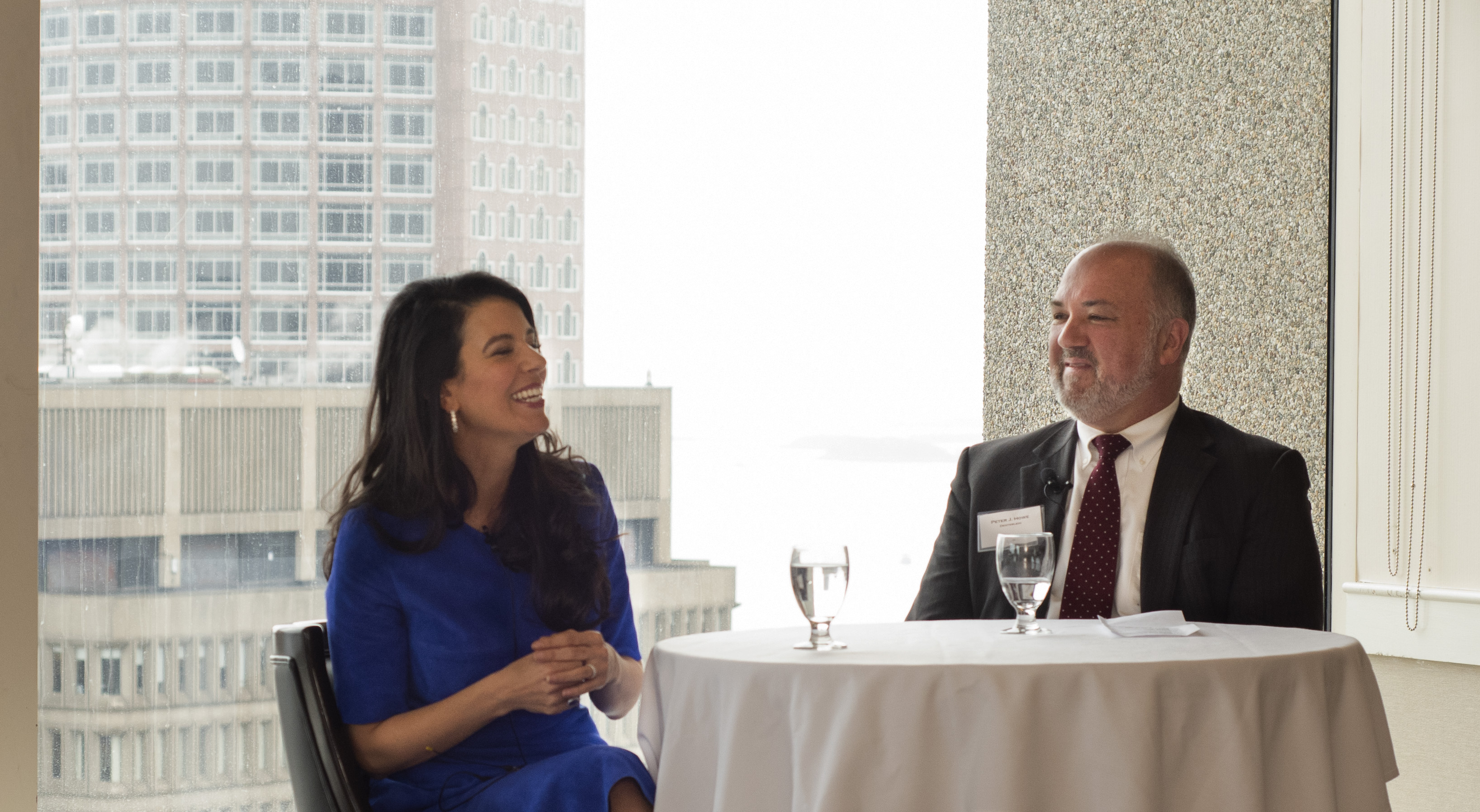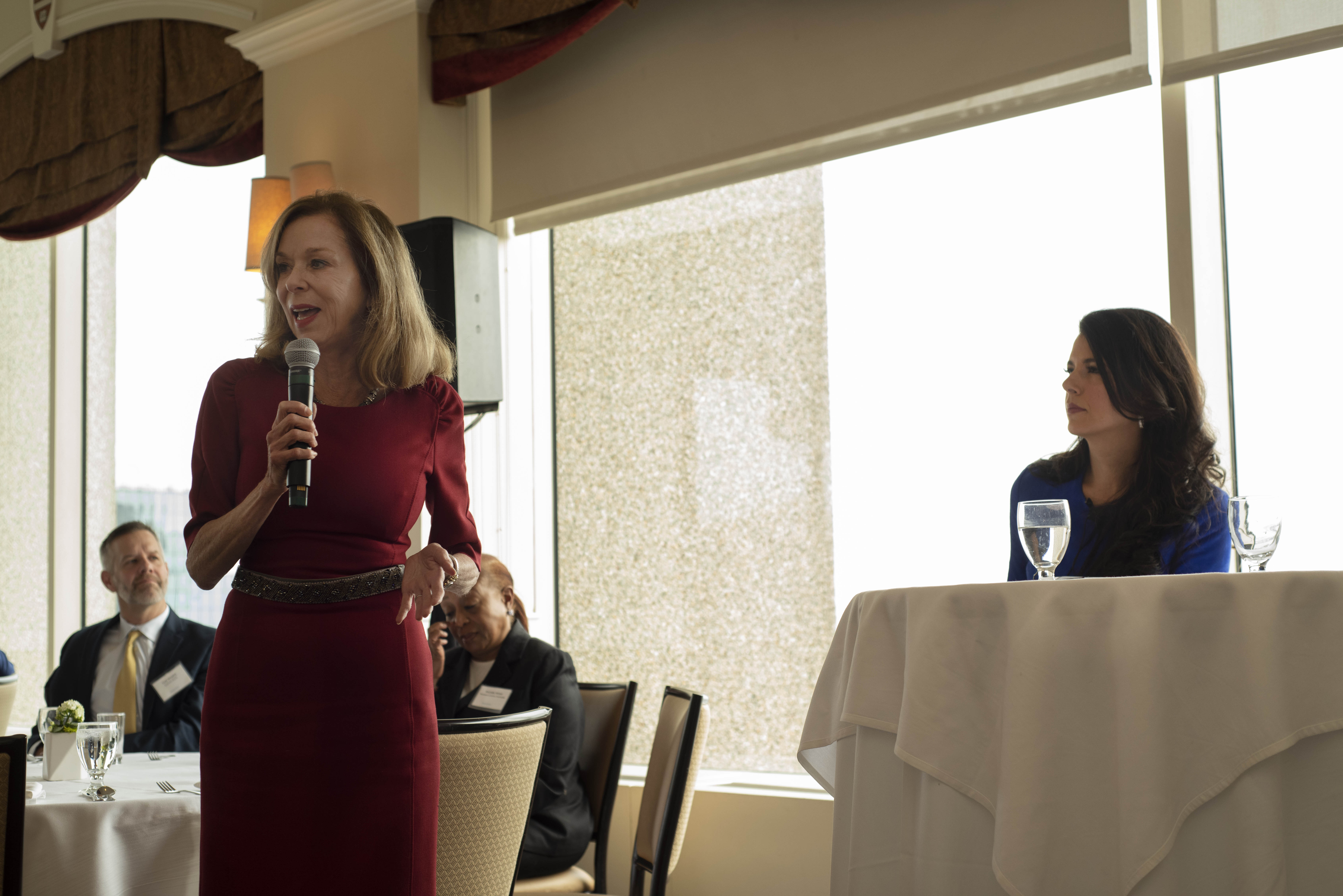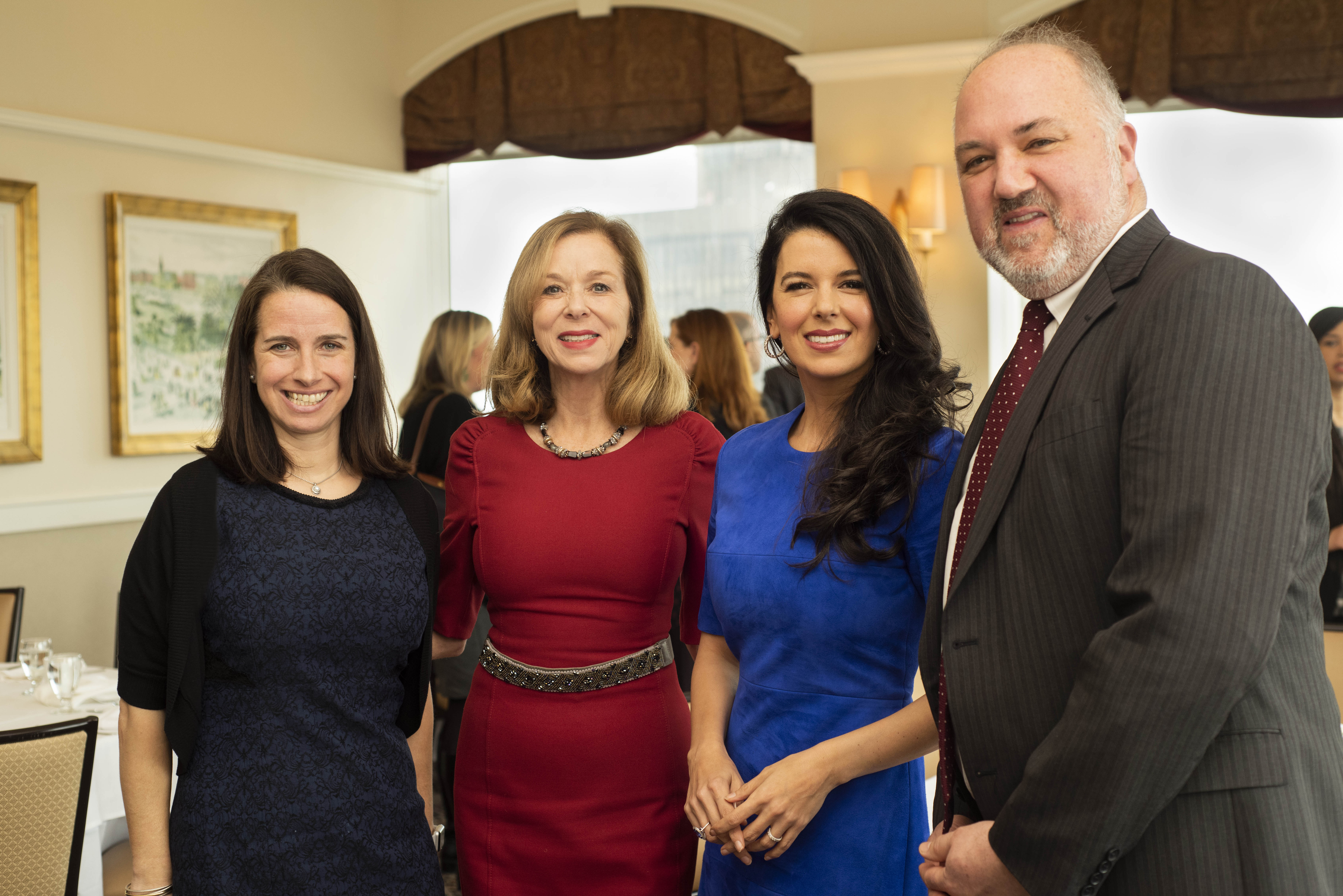As Denterlein celebrates our 20th anniversary, we have been reflecting on the many revolutionary changes over the past two decades–the Internet, social media, the Big Dig, the Seaport–that have transformed both the field of communications and our hometown of Boston.
What has remained remarkably constant through all this disruption: The enduring power of The Boston Globe, in both its news coverage and opinion writing, to set the agenda for our city and to be a national leader in gathering and sharing compelling new ideas, narratives, and content.

At the center of that work today is Linda Pizzuti Henry, Managing Director of the Boston Globe, whom we welcomed for our most recent Denterlein “In the News” event on Wednesday, February 26. As managing director, Henry plays key leadership roles on the Globe’s editorial board as well as in overseeing its business strategy, innovation, and operations.

Here are our top 5 takeaways from a rich and lively conversation:
- The Globe’s now solidly in the black, debt-free, and reinvesting profits in the newspaper and BostonGlobe.com, after a long and difficult six-year process of rightsizing staff, physical plant, and their printing operation. “We knew going in that this was going to be hard,’’ said Henry, who is also the wife of Globe publisher and owner John W. Henry, ”but it was harder than hard.” She also says the Globe has no near-term plans to reduce 7-day-a-week print editions as so many other big-metro dailies have around the U.S. “We wouldn't be shocked” to make the change, Henry said, “but it is not currently in our plan that it would be necessary.” Still, she noted: “Long term, we are not in the clear. We are strong and stable now, but we can see the future–and the economic model is continuing to change.”
- The Globe has committed to engaging with the community–and it’s on the community to engage with the Globe to make sure it has a long, bright future serving Boston. Besides downsizing and reaping the real-estate value of its enormous and “very isolating” 1958-vintage Dorchester headquarters at 135 Morrissey Boulevard, a major reason for the Globe’s move to new offices at 53 State Street was to put reporters right in the heart of downtown, Henry said. When Newton residents complained to Globe editors about the lack of coverage of their city, especially with The Newton Tab’s huge cutbacks in staff and coverage, Henry recounted how the Globe connected with a former Tab editor, now teaching at Boston University, and launched an initiative through which Globe-supervised and -edited BU students produce local coverage of Garden City issues several days a week. Henry said the Globe is now rolling out a similar initiative in the Boston neighborhood of Mattapan in the same spirit of community commitment and coverage. What will make efforts like this sustainable for the long term is if more and more residents recognize that, in Henry’s words, “It’s your Boston Globe” and subscribe, advertise, engage with the content, and keep good ideas flowing to Globe reporters and editors: “We have a smart and engaged population,’’ Henry said. “That’s why we’re one of the few metro newspapers that’s doing well right now–because we have a community that cares.” Greater Boston needs to keep caring and reading.
- Henry believes The Globe has a unique mission and charge to promote the “Boston” in “The Boston Globe” to the world. “No other city is going to explain why Boston is the best place to be. That’s on us,” said Henry. “There really is something special here that's worth fighting for and worth advocating for.’’ A big part of promoting Boston means helping the community understand what in her view are particularly great Boston strengths: technology, art, and science. That was the vision behind the October HubWeek Fall Festival played a critical role in leading The Globe, Harvard, MIT, and the Massachusetts General Hospital to found in 2014 and grow into a year-long celebration of innovative thought leaders from the fields of art, science, and technology who are changing the world. “There’s a power in convening and shaping the narrative of the region,’’ Henry said. “If we convene and celebrate art, science, and technology, we’re going to attract the best people in those fields. [Boston] is a place where they can succeed.”
- Pressure on the journalism business to keep innovating is enormous. “We’re trying things, because we know the old way of doing things is not going to continue to work,” said Henry. She noted that the executive team on the business-management side of the Globe no longer counts “anyone from the newspaper industry,” in the sense of being a veteran of the traditional printed-newspaper business. Journalists, Henry stressed, remain and will remain at the heart of producing the Globe’s journalism. But on the “front office” side of the house, “Management needed to no longer think about how things were, but how things are, and how things can be.”
- She finds something uniquely appealing about reading a physical newspaper every day: Actually getting to the end. Unlike the experience of online reading where there is always one more story and one more link and “one more headline to draw you in,” the pleasure of the printed newspaper for Henry is that when you get to the last page, “You can close it, and you're done. You're never done when you're online.” Despite the number of people who tell her they’re “your last print subscriber,” Henry sees a robust market among people willing to pay the true price of getting a printed, home-delivered newspaper. “Print,” Henry said, “is becoming a premium product.”


